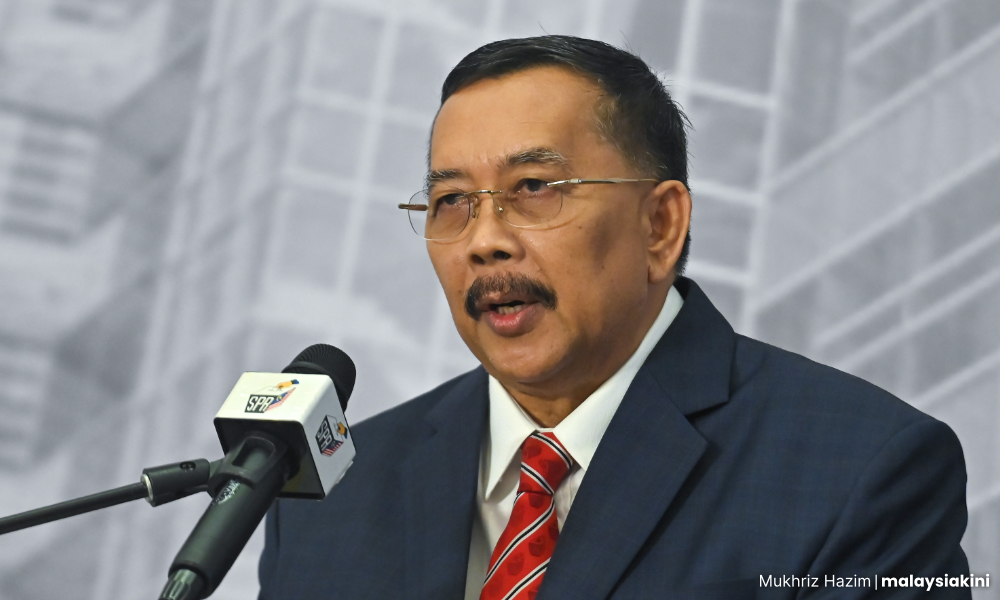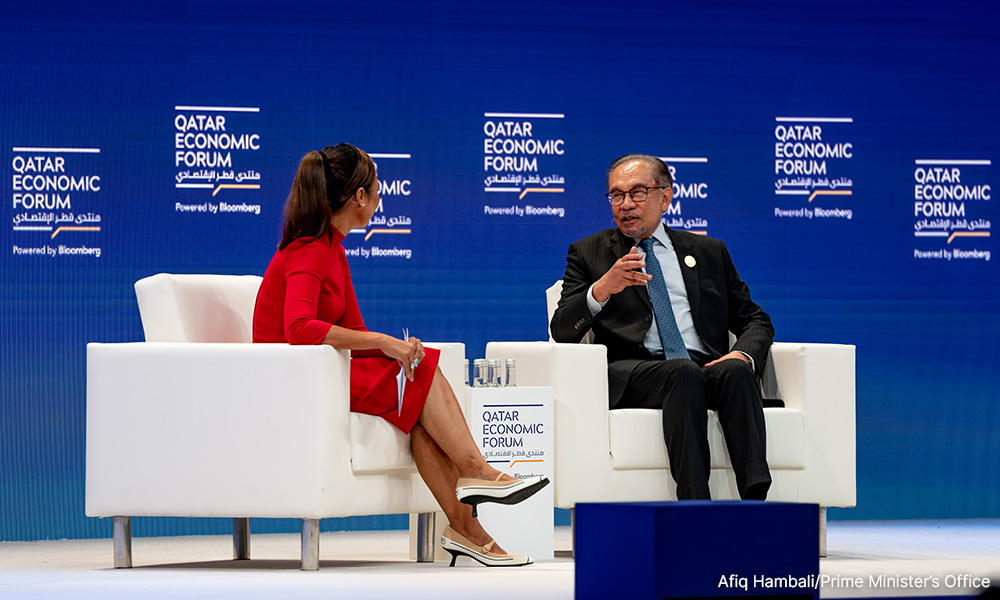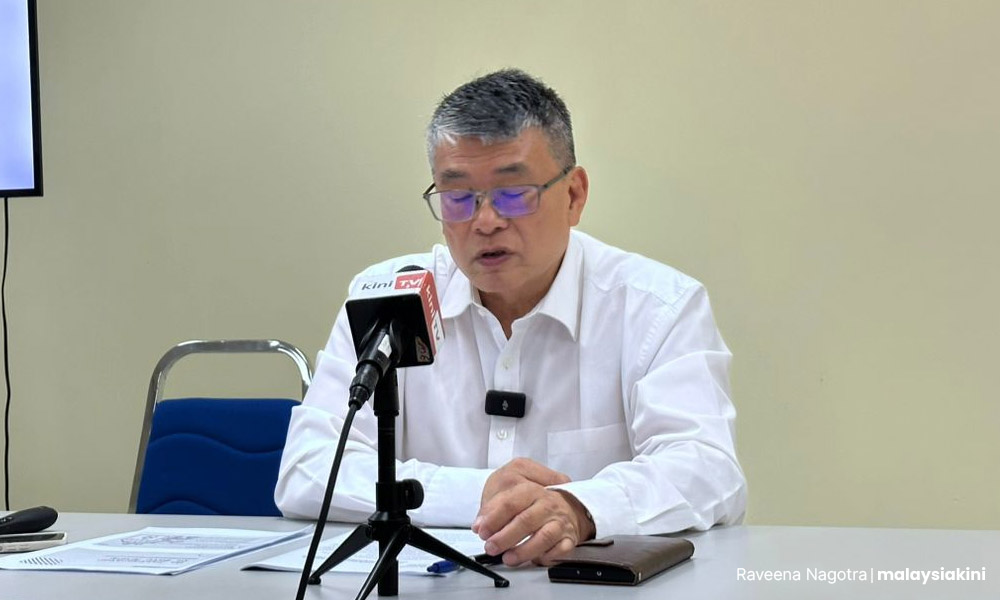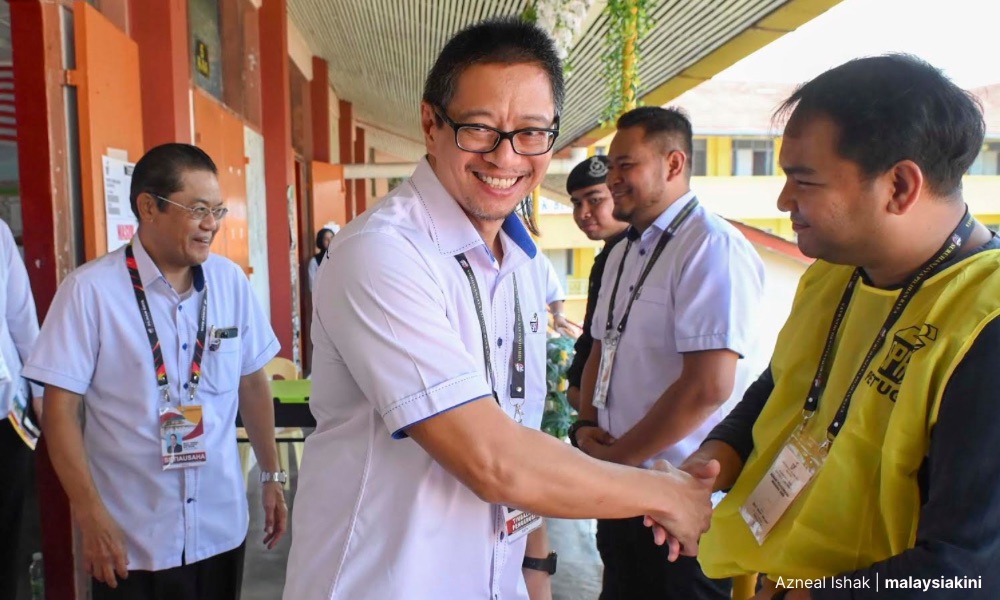
Wong Chin Huat
Published: May 18, 2024 1:48 PM
COMMENT | Earlier this week, Prime Minister Anwar Ibrahim told the Qatar Economic Forum in Doha that radical change will only prompt anger and frustration, which is why reforms failed in many parts of Europe.
He further claimed that the basic flaw of “elitist-democratic ideals” is that “elites have all the answers without even interacting with the masses”.
I can see why failure in change management can lead to failure in changes. But the problem with truism or motherhood statements is that they often become useless by lumping everything together and obstructing the examination of variations in details.
To make his truism useful, I have a question for the prime minister: Would this idea that “nomination for primary positions in the Election Commission (EC) must be vetted by a Special Parliamentary Committee that is made up of members from various parties” be too radical?
That is the call made by Bersih, Tindak Malaysia and most recently, former DAP parliamentarian and political scientist Ong Kian Ming, because two earlier vacancies in the EC were filled with retired senior civil servants without parliamentary vetting.
Published: May 18, 2024 1:48 PM
COMMENT | Earlier this week, Prime Minister Anwar Ibrahim told the Qatar Economic Forum in Doha that radical change will only prompt anger and frustration, which is why reforms failed in many parts of Europe.
He further claimed that the basic flaw of “elitist-democratic ideals” is that “elites have all the answers without even interacting with the masses”.
I can see why failure in change management can lead to failure in changes. But the problem with truism or motherhood statements is that they often become useless by lumping everything together and obstructing the examination of variations in details.
To make his truism useful, I have a question for the prime minister: Would this idea that “nomination for primary positions in the Election Commission (EC) must be vetted by a Special Parliamentary Committee that is made up of members from various parties” be too radical?
That is the call made by Bersih, Tindak Malaysia and most recently, former DAP parliamentarian and political scientist Ong Kian Ming, because two earlier vacancies in the EC were filled with retired senior civil servants without parliamentary vetting.

Former MP Ong Kian Ming
Flaws of appointing retired civil servants
Conventionally, most of these appointees came from departments and agencies with no expertise in electoral systems and processes including the police’s Special Branch.
Instead of bringing in the talents needed, this practice appears to be golden handshakes for appointees at best, and facilitating control by the Executive because careerist bureaucrats were trained to follow instead of challenging authority.
And up to 2018, none of the seven EC members was a woman, much worse than our Parliament and state assemblies.
This changed when the first Pakatan Harapan-led government came to power. Former prime minister Dr Mahathir Mohamad did not involve the Parliament in vetting his candidates.
But to Mahathir’s credit, for the first time, a majority of the EC - four out of seven - were non-civil servants, a lawyer, a law professor, a political scientist, and an electoral reform activist.
These new talents brought in reforms that, even after the departure of Azhar Harun to take up Dewan Rakyat speakership, were continued under the leadership of the next chair, Abdul Ghani Salleh, who was formerly the secretary of the EC and just retired on May 9.
Conventionally, most of these appointees came from departments and agencies with no expertise in electoral systems and processes including the police’s Special Branch.
Instead of bringing in the talents needed, this practice appears to be golden handshakes for appointees at best, and facilitating control by the Executive because careerist bureaucrats were trained to follow instead of challenging authority.
And up to 2018, none of the seven EC members was a woman, much worse than our Parliament and state assemblies.
This changed when the first Pakatan Harapan-led government came to power. Former prime minister Dr Mahathir Mohamad did not involve the Parliament in vetting his candidates.
But to Mahathir’s credit, for the first time, a majority of the EC - four out of seven - were non-civil servants, a lawyer, a law professor, a political scientist, and an electoral reform activist.
These new talents brought in reforms that, even after the departure of Azhar Harun to take up Dewan Rakyat speakership, were continued under the leadership of the next chair, Abdul Ghani Salleh, who was formerly the secretary of the EC and just retired on May 9.

Retired EC chief Abdul Ghani Salleh
It is important to underline this point - opposing the old practice is not an inherent dismissal of retired bureaucrats. The past practice was fundamentally flawed in the lack of justification, transparency, and diversity.
Moving forward, we must ask these three questions in the appointment of the next EC chair or member.
First, on what grounds is the chairperson chosen? Second, are these grounds be made known to the public, and be examined by the direct stakeholders - parliamentarians and the parties they represent?
Third, does the next member bring the greatest added value in diversity which may cover considerations of expertise, experience, gender and cohort (regional and minority diversity are covered)?
Who might oppose parliamentary vetting?
Now, let’s go back to Anwar’s truism. Radical reforms will prompt anger and frustration and therefore not be rushed. To flip it, if a reform will not prompt anger and frustration, then it is not too radical and should be implemented without delay.
Now, let’s look for opponents to parliamentary vetting of the EC members.
The prime minister warns us against the arrogance of elites who allegedly “have all the answers without even interacting with the masses”. Assuming that he knows the masses better than anyone, is there any man or woman on the street who would oppose to it?
It is important to underline this point - opposing the old practice is not an inherent dismissal of retired bureaucrats. The past practice was fundamentally flawed in the lack of justification, transparency, and diversity.
Moving forward, we must ask these three questions in the appointment of the next EC chair or member.
First, on what grounds is the chairperson chosen? Second, are these grounds be made known to the public, and be examined by the direct stakeholders - parliamentarians and the parties they represent?
Third, does the next member bring the greatest added value in diversity which may cover considerations of expertise, experience, gender and cohort (regional and minority diversity are covered)?
Who might oppose parliamentary vetting?
Now, let’s go back to Anwar’s truism. Radical reforms will prompt anger and frustration and therefore not be rushed. To flip it, if a reform will not prompt anger and frustration, then it is not too radical and should be implemented without delay.
Now, let’s look for opponents to parliamentary vetting of the EC members.
The prime minister warns us against the arrogance of elites who allegedly “have all the answers without even interacting with the masses”. Assuming that he knows the masses better than anyone, is there any man or woman on the street who would oppose to it?

Can this be turned into a 3R issue just because a parliamentary committee gets to know why some names are proposed and asks some questions? Let’s look at the political parties and politicians who are good at agitating the masses if they may object to it.
Would Harapan object to this? I hope not.
The sentence I cited at the beginning of this column comes from Chapter 15 Reinforcing Institutional Integrity of Harapan’s manifesto “Kita Boleh! Harapan GE15 Action Plan” (page 40): “Nomination for primary positions in the MACC, EC and the inspector-general of police must be vetted by a Special Parliamentary Committee that is made up of members from various parties”.
OK, we are reminded that this is not a Harapan government, but a coalition government in which Harapan just commands 81 out of 153 parliamentary seats.
Would BN object to this? This is what BN promised in its BN-Padu manifesto to “establish a Parliamentary Special Select Committee (PSSC) regarding the recommendation and vetting of key national positions such as the MACC Chief Commissioner, EC chairperson and Bank Negara Governor” (Promise 5, page 7). That’s another 30 seats.
I am sure that both manifestos were not formulated by elites that “have all the answers without even interacting with the masses”.
What about other major parties in the coalition government, GPS (23 seats), GRS (six) and Warisan (three)? Even though they did not touch on the EC appointments in their election promises to my knowledge, why should they object to a more credible and impartial EC?
What about Perikatan Nasional? I cannot see why they would oppose to greater accountability, transparency and credibility in the EC.
If the matter is referred to a parliamentary committee, it would most aptly be the PSSC on Human Rights, Elections and Institutional Reforms, as Ong rightly pointed out. Who sits on the committee?
The chair is William Leong (Harapan-PKR), joined by eight other MPs, two from DAP, one each from GPS and Umno, two from PAS and an Anwar supporter from Bersatu.

Selayang MP William Leong
So, parliamentary vetting of EC appointees serves the best interest of every party. The opposition is by definition the beneficiary of reforms towards a level playing field.
I urge parliamentary opposition leader Hamzah Zainudin and his Shadow Institutional Reform and Law Minister Che Mohamad Zulkifly Jusoh (also a member of the PSSC mentioned above) to make their stand clear immediately for the record.
Mr Prime Minister, please tell us if you know of any group or segment that would oppose to it.
If there are, let us all engage them to address their concerns and forge a consensus. If there is none, please carry out this not-radical reform without excuse. Your credibility is on the line.
Two good candidates from within the EC
Ong suggested four candidates for the EC chair. I thank him for including me alongside the distinguished names of the EC deputy chair Azmi Sharom (the law professor), commissioner Faisal Haziz (the political scientist) and Ambiga Sreenevasan.
I believe that Azmi and Faisal are the best choices available. A promotion within the EC would also be a morale boost for dedicated EC officials who have tremendously improved our electoral process since 2018.
I urge parliamentary opposition leader Hamzah Zainudin and his Shadow Institutional Reform and Law Minister Che Mohamad Zulkifly Jusoh (also a member of the PSSC mentioned above) to make their stand clear immediately for the record.
Mr Prime Minister, please tell us if you know of any group or segment that would oppose to it.
If there are, let us all engage them to address their concerns and forge a consensus. If there is none, please carry out this not-radical reform without excuse. Your credibility is on the line.
Two good candidates from within the EC
Ong suggested four candidates for the EC chair. I thank him for including me alongside the distinguished names of the EC deputy chair Azmi Sharom (the law professor), commissioner Faisal Haziz (the political scientist) and Ambiga Sreenevasan.
I believe that Azmi and Faisal are the best choices available. A promotion within the EC would also be a morale boost for dedicated EC officials who have tremendously improved our electoral process since 2018.

EC deputy chair Azmi Sharom
This is not to exclude any better candidate from other government agencies, civil society, academia and the corporate sector. Their names can be submitted to the PSSC.
If we have the transparent and accountable process of parliamentary vetting, whoever the best candidate turns out to be, he or she and the EC would “[enjoy] public confidence”, which is categorically stated as the condition for appointment stated in Article 114(2) of the Federal Constitution.
My life passion is the reform of our electoral system to make it more representative, accountable, credible, and conducive to political stability and inclusion. I would do my utmost to support the new EC chair and the EC in this regard.
I wish Azmi and Faisal, whose expertise, dedication, and integrity, I greatly admire the best of luck in this great responsibility to serve the nation and democracy.
WONG CHIN HUAT is a political scientist at Sunway University and a member of Project Stability and Accountability for Malaysia (Projek SAMA). He believes that politicians would inevitably compete on identity politics and patronage if they were not incentivised to compete on policy ideas.
If we have the transparent and accountable process of parliamentary vetting, whoever the best candidate turns out to be, he or she and the EC would “[enjoy] public confidence”, which is categorically stated as the condition for appointment stated in Article 114(2) of the Federal Constitution.
My life passion is the reform of our electoral system to make it more representative, accountable, credible, and conducive to political stability and inclusion. I would do my utmost to support the new EC chair and the EC in this regard.
I wish Azmi and Faisal, whose expertise, dedication, and integrity, I greatly admire the best of luck in this great responsibility to serve the nation and democracy.
WONG CHIN HUAT is a political scientist at Sunway University and a member of Project Stability and Accountability for Malaysia (Projek SAMA). He believes that politicians would inevitably compete on identity politics and patronage if they were not incentivised to compete on policy ideas.

No comments:
Post a Comment